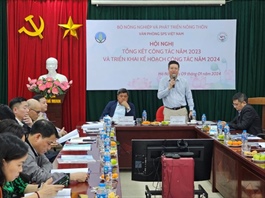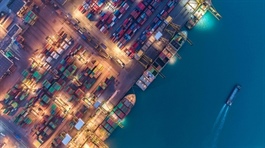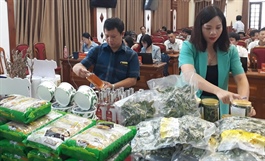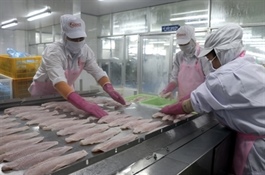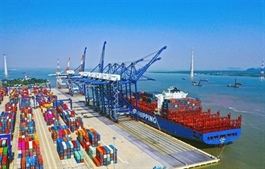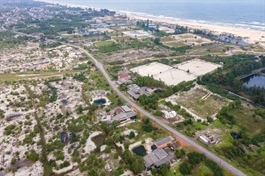Logistics prioritized for economic development in Hanoi
Logistics prioritized for economic development in Hanoi
Hanoi creates favorable conditions for industry associations related to logistics services.
Hanoi has set a target to improve the logistics competitiveness of manufacturing and trading companies and build a modern logistics system by 2025, according to Tran Duc Nghia, representative of the Hanoi Logistics Association.
Nghia said Hanoi is the economic and political hub of Vietnam and currently has nine industrial parks in operation and more than 100 industrial clusters. It has 150 supermarkets, 454 wet markets, and more than 10,000 convenience stores for about 10 million city residents. These figures show that logistics activities in Hanoi are high compared to other places in the northern region and nationwide.
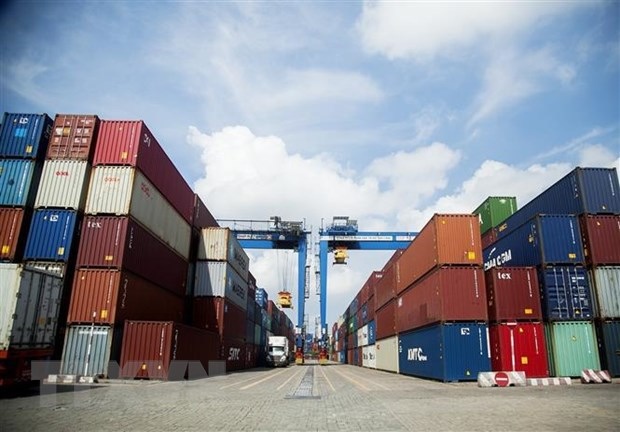
The warehouse infrastructure in Vietnam's logistics industry has changed rapidly. Photo: VNA |
Nghia stressed that Hanoi, which ranks second after Ho Chi Minh City in terms of economy, has created favorable conditions for the development of logistics enterprises.
Deputy Director of the Municipal Department of Industry and Trade Nguyen The Hiep said that in 2024, Hanoi will carry out some key tasks, including concretizing the plan of logistics centers and infrastructure, building a centralized inspection point for import and export goods in the city, and others.
"The plan to develop logistics services in Hanoi by 2025 sets the goal to develop and support logistics activities to improve the competitiveness of manufacturing and trading enterprises, form a modern logistics system, and contribute more to the city's gross regional product (GRDP)," Hiep said.
In particular, the logistics infrastructure has been synchronized with the transportation infrastructure and modern trade network for import-export, transshipment, and circulation of goods.
Hanoi will also develop an intelligent transportation system, transform logistics infrastructure (such as seaports, inland waterway ports, airlines, railways, warehouses), and ensure connecting platforms between shippers, transporters, and customers, Hiep said.
He added that Hanoi will also facilitate programs and conferences to connect logistics enterprises with information technology software experts and companies to train and support logistics service software (RFID, barcode, e-logistics) in line with international standards.
Nguyen Hong Son, Director of the Hanoi Department of Science and Technology, said that to support logistics activities and foster innovative logistics services, Hanoi needs to deploy many synchronous solutions, especially the application of science, technology, and digital technology in the coming period.
"Hanoi needs to promote logistics and connect the capital region to facilitate the transportation and distribution of goods from Hanoi to other provinces and cities; create favorable conditions for industry associations related to logistics services," Son added.



